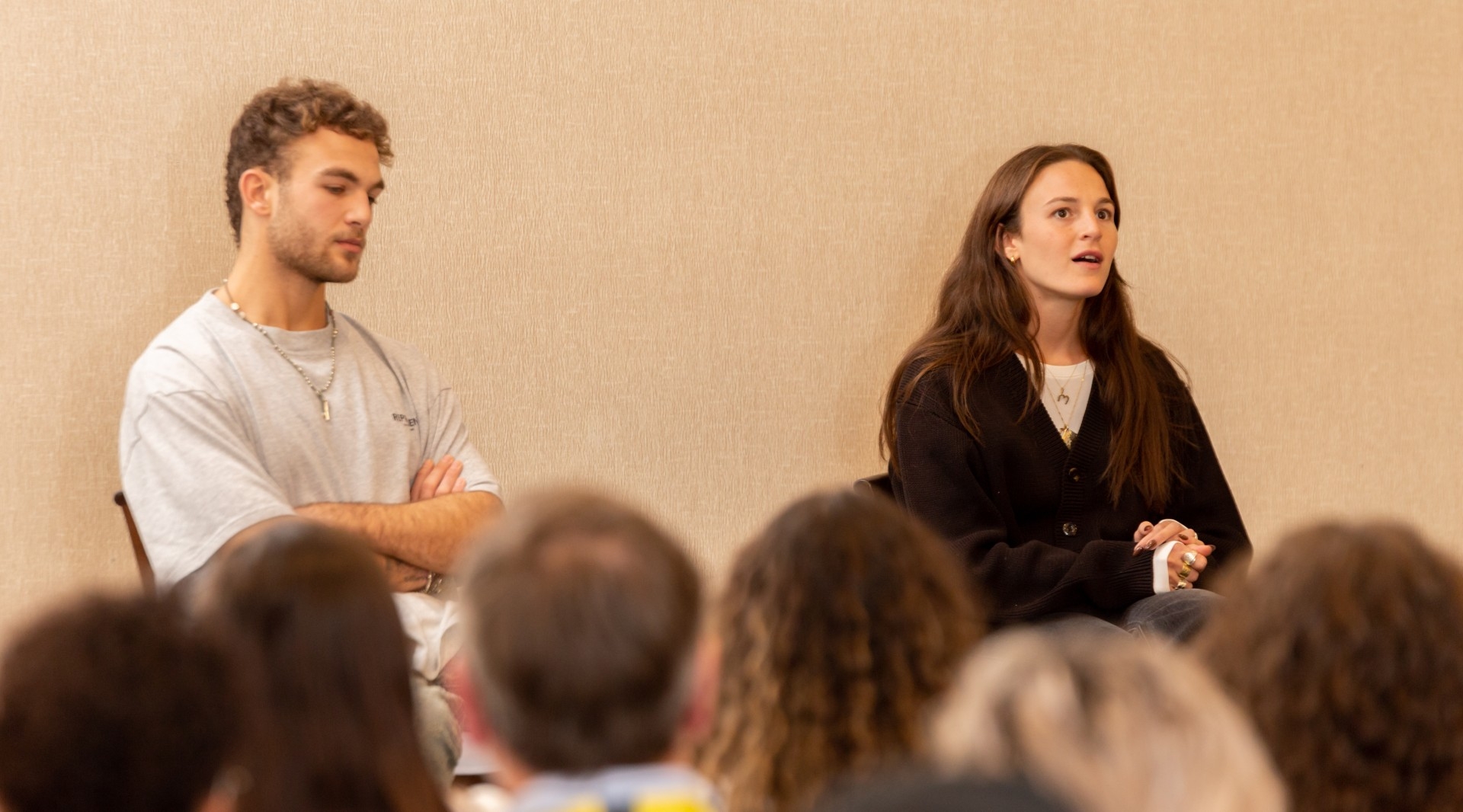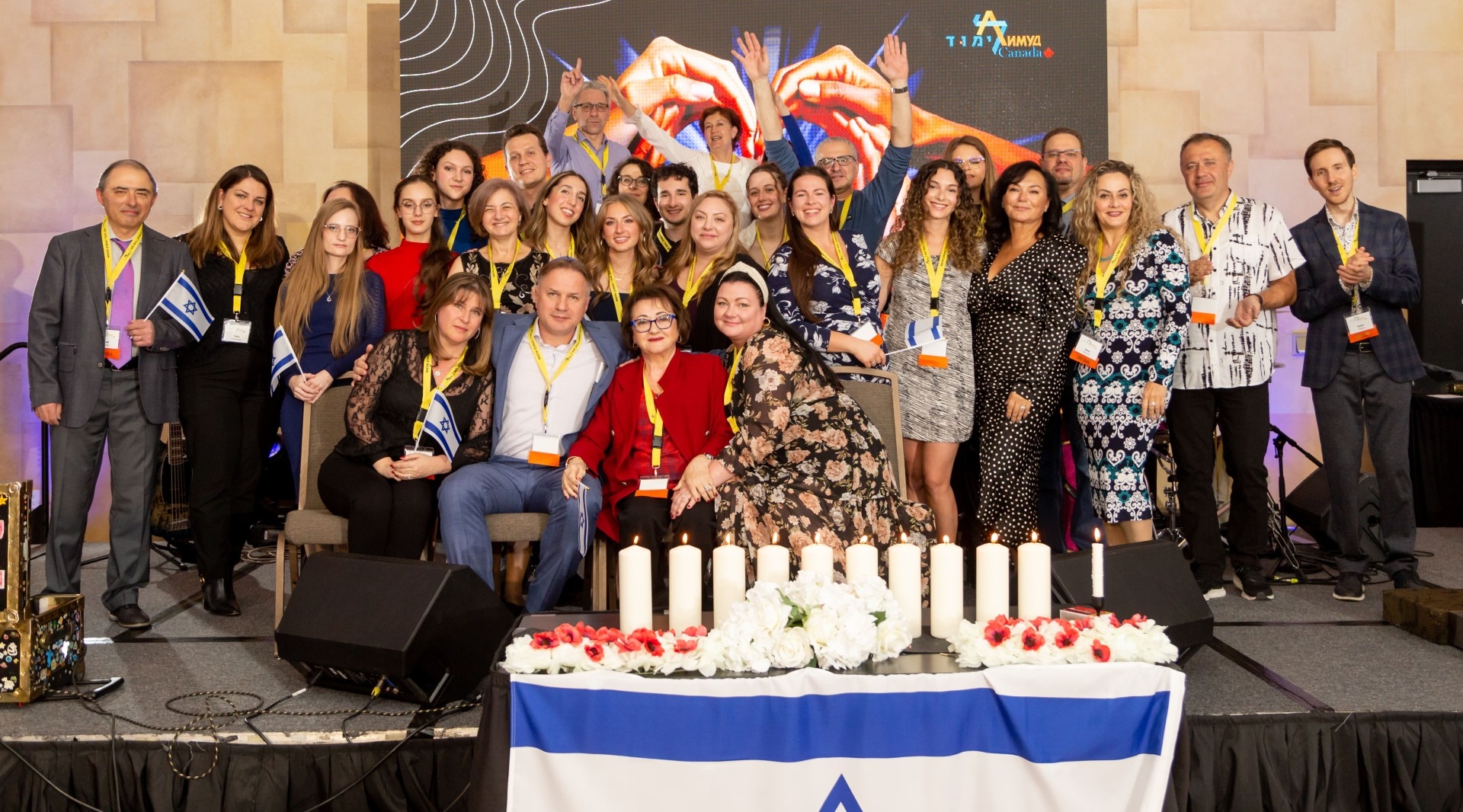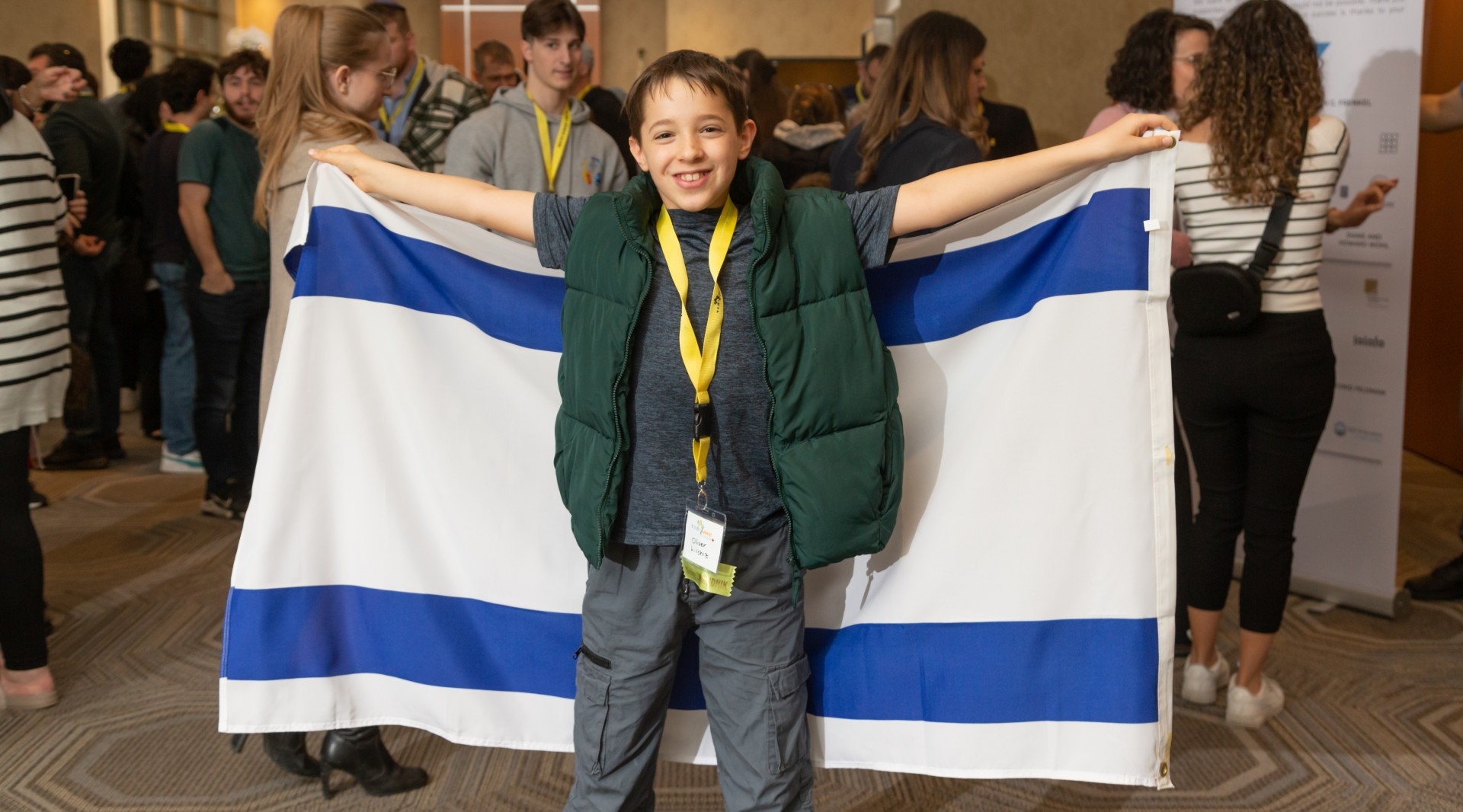As 350 Jews with roots in the former Soviet Union gathered recently for a weekend conference at a Canadian Niagara Falls resort, Montreal was experiencing one of the worst outbreaks of antisemitic violence in Canada in this century.
Hundreds of protesters smashed shop windows, attacked police officers, set fire to cars, and waved Hamas and Hezbollah flags. The violence sent chills through Canada’s Jewish community—at over 330,000, the Diaspora’s third-largest after the United States and France.
“This is a clear warning sign that demands a decisive response from all who uphold democratic values,” Raheli Baratz, head of the World Zionist Organization’s Department for Combating Antisemitism and Enhancing Resilience, said of the Niagara Falls conference organized by Limmud FSU Canada. “We must unite in the fight against hate and protect the safety of all Canadian citizens.”
Several speakers at the event focused on the problem of antisemitism. The conference was hosted by Limmud FSU, the nonprofit organization that caters to the 60,000 or so Canadian Jews with roots in countries like Russia, Ukraine, Belarus and others that once comprised the Soviet Union. Since the first conference in 2005, at least 90 events across the globe have been hosted by 13 volunteer teams with over 80,000 participants.
The Nov. 22-24 gathering at Ontario’s White Oaks Resort & Spa also coincided with a sharp escalation of the Russian war in Ukraine, now in its third year. Shelly Pisarenko, 32, has roots in both countries. In 1989 her parents moved to Israel, where she was born. Now married, Pisarenko attends Toronto’s York University, where she says antisemitism is pervasive.
“I don’t feel physically threatened, but it’s dangerous to disclose who you are,” said Pisarenko, a psychology major also studying for her Ontario teaching license. “You have to be very careful with whom you share your Jewish identity. Really, I try to avoid any sort of protests on campus.”
Pisarenko leads Limmud FSU Canada’s Young Professionals committee, whose focus this year was on responding to Jew hatred and verbal abuse, whether on campus or at the workplace.
The festival’s theme was “We Will Dance Again,” a tribute to the 364 people massacred by Hamas terrorists on Oct. 7, 2023 at the Nova music festival near Kibbutz Re’im in southern Israel.

Siblings Maya and Itay Regev, who were kidnapped on Oct. 7, 2023, from the Nova party and later released, speak at the Limmud FSU Canada conference, November 2024. (Alexei Malakhov)
Workshops in English and Russian covered weighty topics such as “God and the Holocaust: Can They Coexist?” and “Wars in Ukraine and Israel: Against a Common Enemy.” Lighter fare was on the agenda too, such as a lecture on the history of Jamaica’s Jews, a halachic analysis of artificial intelligence, and a debate on the relative health benefits and risks of drinking coffee.
Pro-Israel social influencer Rudy Rochman offered a seminar on understanding and combating antisemitism. Mayor Jeremy Levi of Hampstead, a heavily Jewish upscale suburb of Montreal, spoke on what it’s like to be a politician and a Jew in Canada post-Oct. 7. Uzi Dayan, former head of the Israeli National Security Council, spoke on “What happened on Oct. 7: First 24 hours and beyond.”
Melissa Lantsman, 40, the first Jewish woman ever to serve as a Conservative Party lawmaker in Canada’s House of Commons, also spoke. Elected three years ago, she represents the Toronto suburb of Thornhill, home to more than 10,000 Jews of ex-Soviet origin.
One of the most powerful presentations came from Maya Regev, 22, and her brother Itay, 18, who were kidnapped from the Nova festival, dragged to Gaza and held hostage there by Hamas. The siblings were released in a hostage deal and returned home 59 days later.
Vicky Sirkovich, 19, a Canadian-born business technology student whose mother is from Russia and father is from Moldova, said, “It was difficult for me to listen to them, but everyone should have been at that lecture.”
This was Sirkovich’s first Limmud FSU event; she had planned to volunteer at last year’s conference, but it was cancelled after the Oct. 7 attack.
“It was so nice to see everybody together,” Sirkovich said. “I don’t attend conferences very often, but everyone there had the same background: Jewish and Russian-speaking. And any event where I can be among Jewish people is a great event for me.”
Participants came not just from Canadian cities like Toronto, Montreal and Ottawa but also from Atlanta, New York and Boston.
“Despite the challenges facing Israel and the Jewish world, we see a real enthusiasm for Jewish learning, for community and for being together,” said Limmud FSU founder Chaim Chesler. “It’s an incredible thing to witness.”
Co-founder Sandra Cahn added, “Our amazing Canadian team continues to inspire and impress with its dedication and impact.”

As at all Limmud conferences, the Canada event relied largely on volunteers. (Alexei Malakhov)
Key supporters of Limmud FSU in Canada include the Conference on Jewish Material Claims against Germany, the Jewish National Fund (KKL), World Zionist Organization, UJA Federation of Greater Toronto, the Canadian Forum of Russian-Speaking Jews, and philanthropists Harry Rosenbaum, Diane Wohl, Shoel Silver, Warren Kimel, Henry Koschitzky, Mickey Blayvas, Alex Shtein and Bill Hess, among others. Besides Chesler and Cahn, the organization’s leaders include Matthew Bronfman and Malcolm Hoenlein.
Sergey Petrenko, president of Limmud FSU Canada, learned about Limmud FSU from his son Dan, who attended his first Limmud conference in 2015 along with friends from the Jewish summer camp where he’d worked. Petrenko and his wife Ella, both from Odessa, immigrated to Israel at a young age and moved to Canada 18 years ago for business reasons.
“A huge part of the Russian-speaking Jewish community was robbed of its Jewish roots while living in the Soviet Union,” Petrenko said. “The main goal of Limmud FSU is to gain it back.”
Limmud FSU festivals generally feature kosher food, klezmer music, Russian-language comedy shows and a cheerful atmosphere.
“But this year it was different,” Petrenko observed. “We gathered under the very heavy shadow of the events of Oct. 7. The whole community is heartbroken over the hostages.”
Petrenko said Oct. 7 was a turning point for his family. His son Dan, 26, and his daughter Michal, 24, found themselves blocked on social media by non-Jewish friends in the weeks following.
“Our daughter said she didn’t feel safe in Canada anymore and started to look for a job in Israel, which she eventually found,” he said. “Hate has increased enormously in all countries where Jews live, and Canada is no exception.”
Amid these challenges, Natasha Chechik, the executive director of Limmud FSU, expressed a sense of hope and trust in the strength of the community.
“Canada has rapidly become one of our flagship events, with so much potential for growth,” she said. “Despite the antisemitism on the rise, this incredible team and community continue to shine as a beacon of resilience, and we cannot wait to see what 2025 has in store for them.”
JTA has documented Jewish history in real-time for over a century. Keep our journalism strong by joining us in supporting independent, award-winning reporting.
This article was sponsored by and produced in partnership with Limmud FSU, which nurtures open, pluralistic, dynamic learning platforms across the world for Jews of all ages and backgrounds with roots in the former Soviet Union, while embracing the Jewish intellectual, cultural and religious traditions grounded in this shared experience. This article was produced by JTA’s native content team.
More from Limmud FSU





